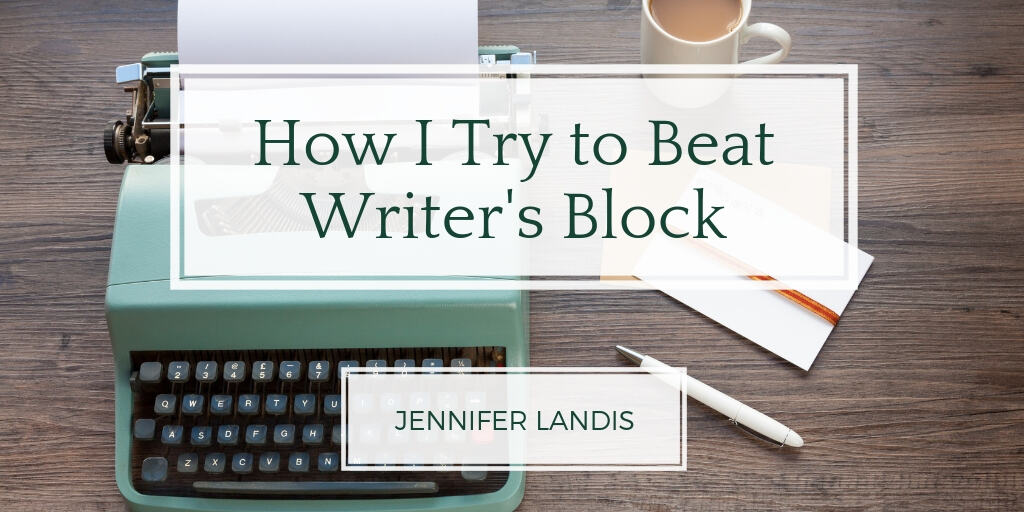How I Try to Beat Writer’s Block
 “And now that you don’t have to be perfect, you can be good.” Author John Steinbeck penned these words, and I keep them prominently displayed on a whiteboard that sits next to my writing space. They fully and succinctly define the philosophy that helped me overcome writer’s block once and for all.
“And now that you don’t have to be perfect, you can be good.” Author John Steinbeck penned these words, and I keep them prominently displayed on a whiteboard that sits next to my writing space. They fully and succinctly define the philosophy that helped me overcome writer’s block once and for all.
Many of us writer folks are perfectionists in nature, and all of us secretly harbor dreams of writing the great American novel or becoming the next Stephen King. However, even if we never reach the level of fame many desire, we nevertheless can earn a healthy living doing what we love — if we can get out of our way first. Here’s how I managed to beat my writer’s block, and how you can, too.
Why Does Writer’s Block Strike?
Writer’s block can stem from many reasons. Often, such blocks strike when we put too much pressure on ourselves to perform at our best. It’s healthy to be competitive and to want to do well. However, when we demand perfection of ourselves, we often — to steal a term from the novel “Watership Down” — go tharn, frozen like a rabbit in headlights.
 “But wait a second,” you might be thinking, “won’t literary agents and magazine editors immediately toss my submission into the circular file if there’s so much as a single typo in my work?” Yes and no. While it’s true submitting work replete with misspellings and grammatical errors can kill your chances of publishing a particular piece, I’ve caught plenty of errors when reading articles online, and even in full novels.
“But wait a second,” you might be thinking, “won’t literary agents and magazine editors immediately toss my submission into the circular file if there’s so much as a single typo in my work?” Yes and no. While it’s true submitting work replete with misspellings and grammatical errors can kill your chances of publishing a particular piece, I’ve caught plenty of errors when reading articles online, and even in full novels.
Grammatical rules exist in a constant state of flux, and they do change with time. Plus, depending upon the culture of the organization you pitch to, they may prefer hip, up-to-date lingo over stodgy conventions that ring of yesteryear. If your writing is of good quality, the occasional typo or unorthodox turn of phrase won’t destroy your career.
What will destroy your writing dreams? Never submitting your work anywhere due to insecurity over perfection. Do your best, but once you’ve reviewed everything two or three times, hit send.
Learn How to Take Rejection

Another reason we writers struggle with block is we take rejection personally. We allow one or several people’s critiques to shatter our self-worth and make us think we don’t have what it takes to compete in the industry.
Draw inspiration from what famous writers have to say about rejection. For example, Ernest Hemingway’s “The Sun Also Rises” remains one of the most enduring American classics in high school and college curricula. However, when you read what Moberly Luger of publisher Peacock and Peacock had to say about the novel, you’ll consider rejections such as “Your work doesn’t fit the tone of our publication” with a grain of salt.
Stop Isolating Yourself

Writing is a lonely endeavor, which is something many of us enjoy, as we tend to be an introverted tribe. However, keeping our projects under wraps invites procrastination — after all, if no one knows we’re writing a book, no one can hold us accountable by asking how work on it is proceeding. Plus, teamwork can help you see things in a new light and inspire you to finish when you get stuck.
This suggestion is, admittedly, nerve-wracking, but put yourself out there. Let friends on social media and IRL in on your projects and plans, and welcome their input. As frightening as it can be to scream what you’re doing from the mountaintops, it helps you bust through writer’s block like nothing else — using this technique helped me meet a critical self-imposed deadline, and also allowed me to find a collaborator for a work of nonfiction I wanted help with.
Eliminate Distractions During Scheduled Writing Hours

Many of us find ourselves complaining there aren’t enough hours in the day to get to the writing we wish to complete. However, when was the last time you analyzed how many hours during the day you spend on fluff tasks such as checking email and social media instead of getting real work completed?
The 80/20 rule tells us 80% of our results stem from 20% of our efforts. While you’ll most often hear the term used in investing lingo, it applies to productivity as well.
In short, nothing but writing is going to get your book finished or your website launched. Not checking your email, not writing clever tweets on Twitter and not puttering around the house dusting when you should be dedicating at least as much time to your craft. Learn to shut out distractions for at least 30 to 60 minutes daily to do nothing but focus on the blank screen before you.
Yes, You Can Be a Good Writer — and Yes, That Can Be Enough
Many people dream of the writing lifestyle, but allow fear of rejection, insistence on perfectionism, reliance on distractions and isolation from others to hold them back. By changing these habits, you, too, can achieve the life of your dreams. You may not become the next J.K. Rowling — though who knows, right? — but you can make a comfortable living doing what you love once you kick writer’s block to the curb.
About Jennifer Landis
 Jennifer Landis is a mom, wife, and healthy living blogger at Mindfulness Mama. She loves yoga, distance running, peanut butter, and spending the small amount of free time she has watching Netflix with her husband.
Jennifer Landis is a mom, wife, and healthy living blogger at Mindfulness Mama. She loves yoga, distance running, peanut butter, and spending the small amount of free time she has watching Netflix with her husband.



I'd love to hear your thoughts!